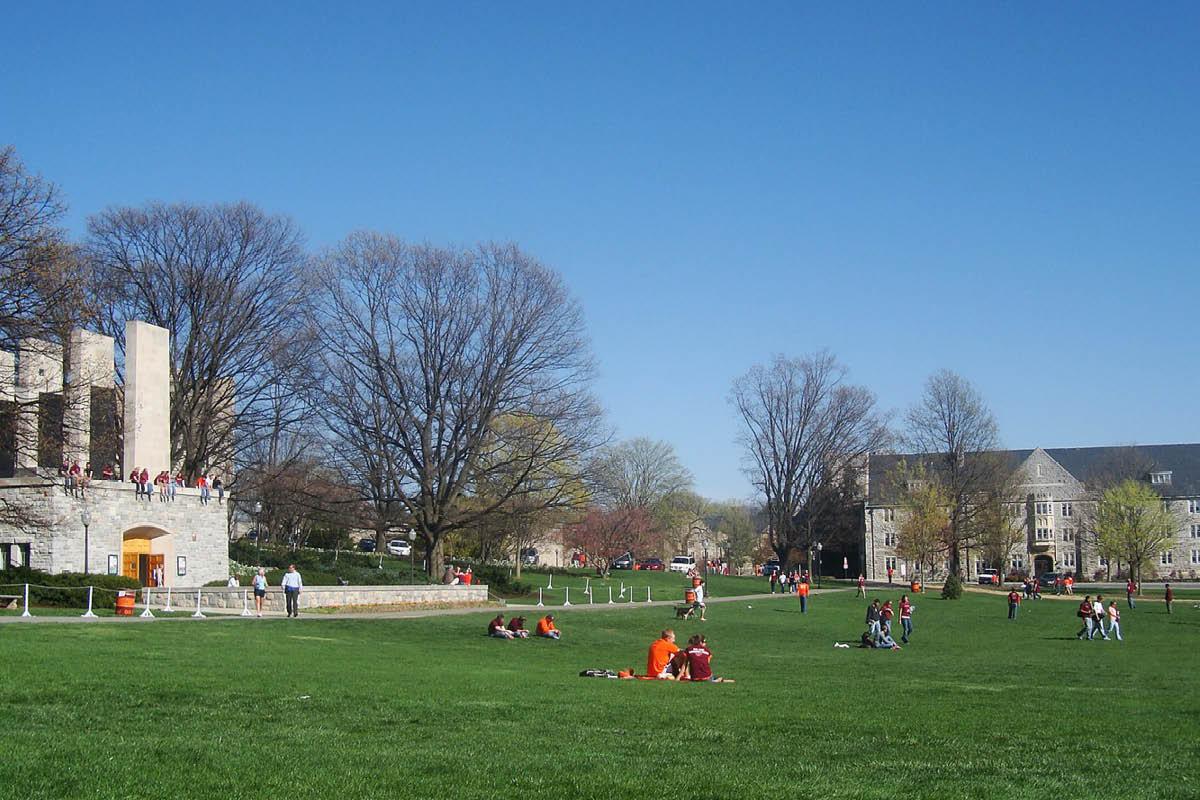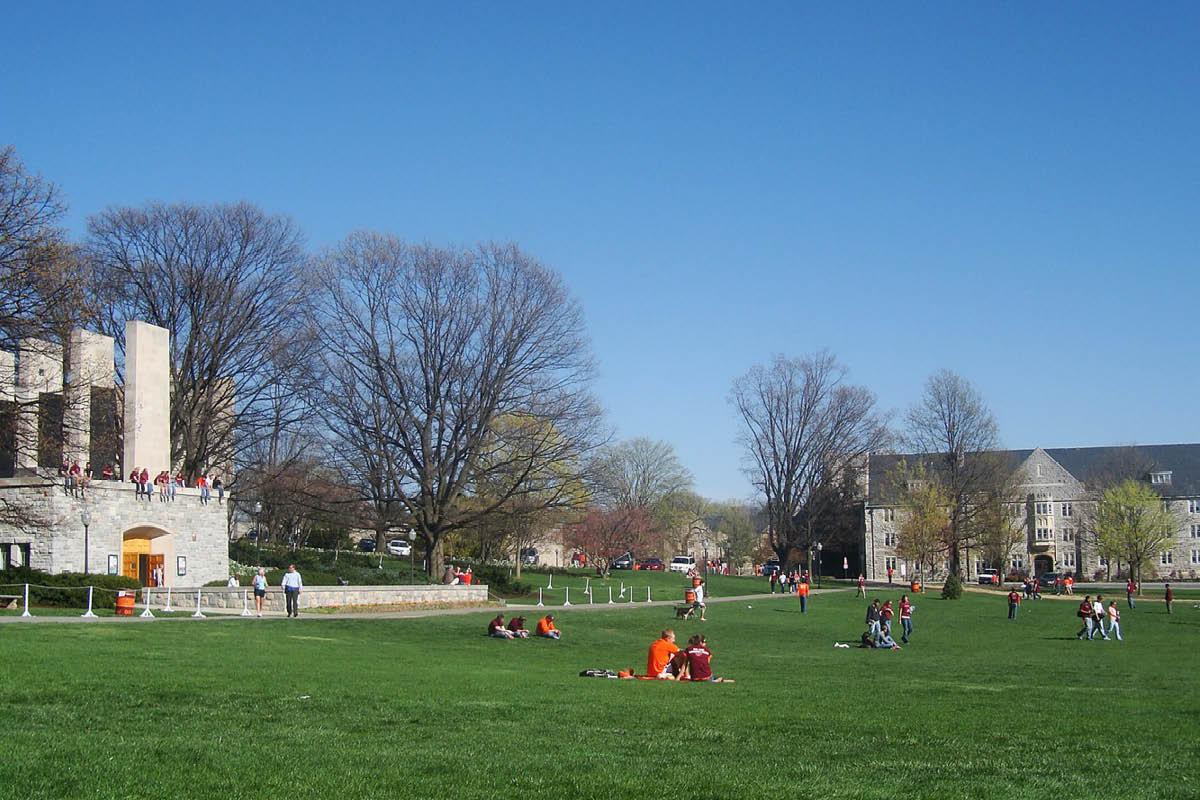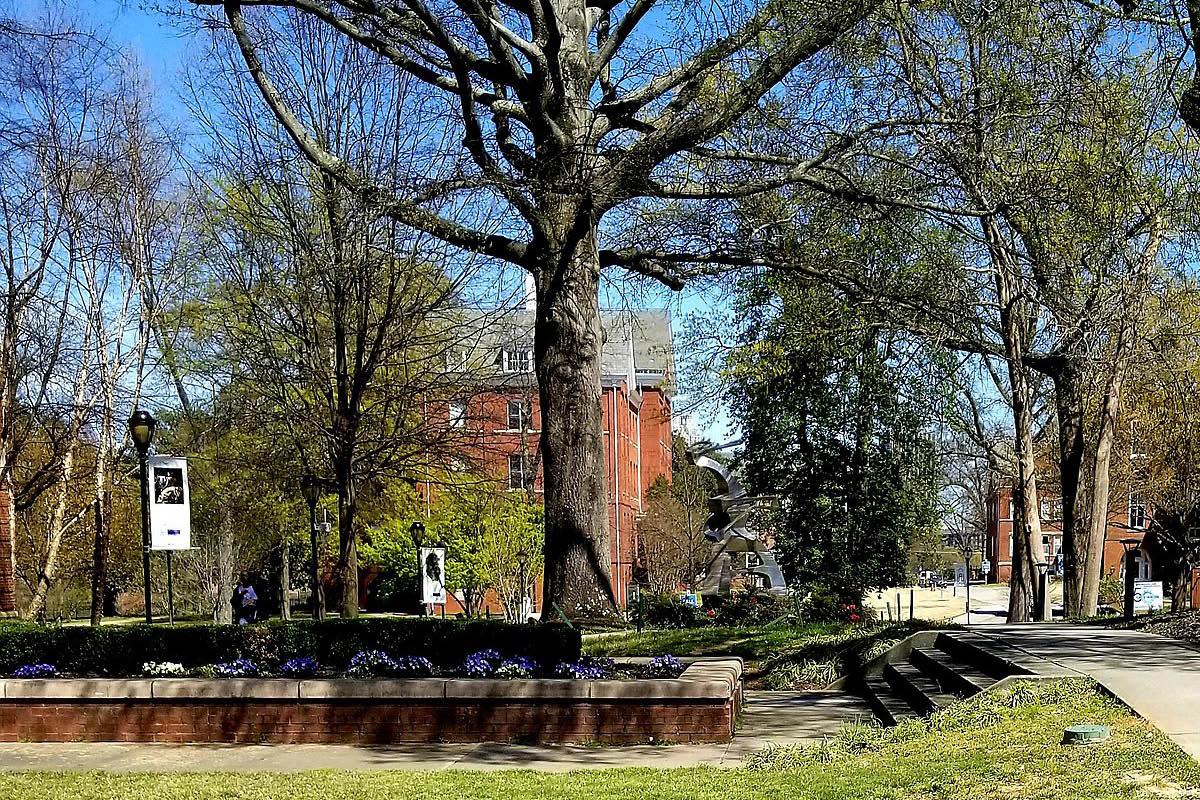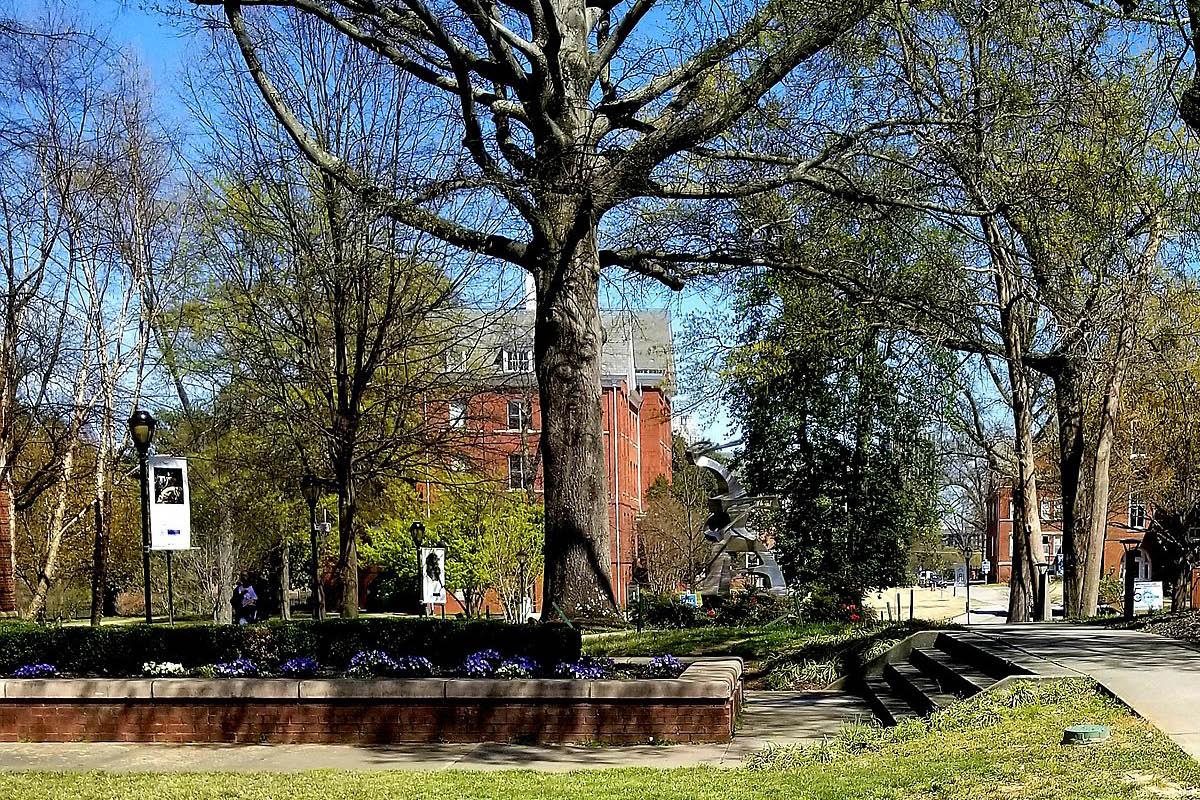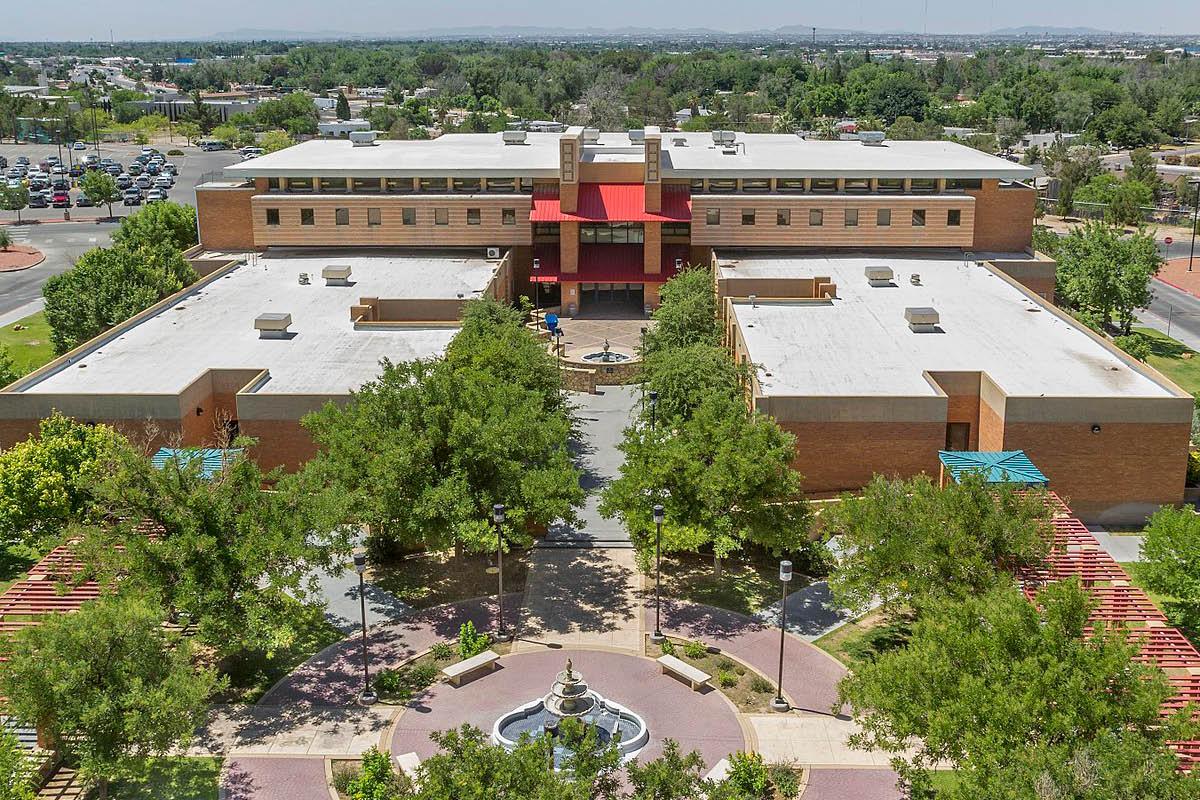Strengthening the Humanities in Higher Education


This fall, millions of students are returning to two- and four-year college and university campuses across the country, where National Endowment for the Humanities (NEH) grants are strengthening the humanities in higher education. From the mountains of Blacksburg, Virginia, to sunny Orlando, Florida, explore recent NEH-supported projects to develop new curricula and degree paths, expand learning centers, and connect the humanities with key disciplines, including STEM fields.
For upcoming grant opportunities for individuals, including university faculty and scholars, and organizations, click here .
Developing a Humanities-Focused Food Studies Minor
Virginia Tech | Blacksburg, Virginia
In 2016, NEH’s Division of Education Programs launched the Humanities Connections grant program, supporting the expansion of the role of humanities in undergraduate education. Over the last six years, Humanities Connections grantees have developed innovative curriculums and formed interdisciplinary partnerships, enriching the education of students at two- and four-year institutions across the country, including Virginia Tech.
Led by director Anna Zeide, the Virginia Tech Food Studies Program is using a Humanities Connections Planning Grant to develop a humanities-focused food studies minor, bringing the methods and insights of the liberal arts to the study of foodways and food systems. As a leading research and engineering institution with a robust agriculture program, Virginia Tech is poised to effectively bring together the humanities and sciences, encouraging students to think critically about and develop solutions for global food systems.
“This minor will complement any major on campus, offering a versatile, fascinating, and widely applicable set of courses with great instructors,” explained Zeide. “Yes, you’ll learn about the global food system on which we all rely for sustenance. But you’ll also learn how to connect the dots across disciplines, seeing how the humanities, sciences, and social sciences interrelate and support one another.”
Learn more about Division of Education Programs grants, including Humanities Connections awards, here.
Odysseus Goes to University: Veteran to Scholar Bootcamp
East Carolina University | Greenville, North Carolina
“This program has restored my confidence that I can succeed in the college environment.”
– Bootcamp participant.
Established in 2017 with funding from NEH’s Dialogues on the Experience of War program, East Carolina University’s Veteran to Scholar Bootcamp helps student veterans navigate the transition to campus and build the skills necessary for academic success. Led by program co-director Anna Froula, the bootcamp provides a network of support and solutions to the unique challenges student veterans encounter.
Each semester, a small group of incoming student veterans participates in a two-week faculty-led program that connects them to campus resources and allows them hone classroom skills through discussion of war novels, films, and short stories. As the students develop a community, they also build the “soft skills” necessary for academic success—such as communication, critical reading and thinking, and writing—through the study of humanities texts exploring the experiences of war.
"I hope that they are going to feel really confident about their study skills, about their place in the university, about seeing themselves as students and forming their student identity. I want them to feel comfortable on campus,” said Froula .
Learn more about the Dialogues on the Experience of War grant program here.
Preservation of Rockefeller Fine Arts Building
Spelman College | Atlanta, Georgia
For more than 70 years, the National Trust for Historic Preservation has worked to save our nation’s historic sites. A recipient of the National Humanities Medal in 2001, the Trust is a longtime partner of NEH, working together to provide essential funding to institutions across the country. In 2021, NEH and the Trust launched the HBCU Cultural Heritage Stewardship Initiative, awarding more than $650,000 in grants to eight Historically Black Colleges and Universities.
The program provides HBCUs with resources to protect and leverage their historic campuses, ensuring these landmarks of African-American excellence are preserved for generations to come. Spelman College in Atlanta, Georgia, is using the funding to develop a stewardship plan for the college’s Rockefeller Fine Arts Building, the campus’ first Modernist building, opened in 1964. The plan will address critical updates to the building’s mechanical and structural systems, while preserving its architectural character.
In conversation with the Trust, Spelman director of facilities management & services, Arthur E. Frazier III, shared: “It is not enough to just preserve these buildings. We want to make sure they are relevant to how our students live and learn at Spelman in the 21st century. It is our intent that having students at the table participating in the development of these preservation plans will create future advocates for not only the preservation of Spelman but of all HBCUs.”
View upcoming grant opportunities from the Division of Preservation and Access and the Office of Challenge Programs for organizations working to improve their preservation resources and critical infrastructure.
HUM-STEM: Redefining Experiential Curriculum for First-Year Students
El Paso County Community College |El Paso, Texas
El Paso Community College (EPCC) in western Texas, one of 26 recipients of Humanities Connections grants in spring 2021, was awarded NEH funding to develop a humanities-STEM (HUM-STEM) hybrid pilot program for first-year students. Offering more than 130 academic programs and 300 continuing education courses, EPCC is a Hispanic-serving institution with five campuses along the U.S.-Mexico border, serving nearly 29,000 students.
Developed by faculty in EPCC’s English, mathematics, and biology departments, the HUM-STEM program will partner with the first-year experience program. A two-week summer bridge program will prepare incoming students for a revamped interdisciplinary curriculum that emphasizes experiential and project-based learning. Through the program, students will be encouraged to explore the humanities and STEM fields, develop professional skills, and receive guidance to meaningfully choose their academic path forward.
“This NEH planning grant will provide an opportunity for robust interdisciplinary collaboration between the humanities and STEM at EPCC, particularly in experiential learning,” project manager Margie Nelson Rodriguez said . “Experiential learning helps students apply what they have learned and this program, HUM-STEM, will connect humanities and STEM for faculty and students."
Learn more about the Division of Education Programs grants, including Humanities Connections awards, here.
University of Central Florida | Orlando, Florida
NEH Infrastructure and Capacity Building Challenge Grants, offered through the agency’s Office of Challenge Programs, help educational and cultural institutions leverage federal funding to expand and strengthen both physical and digital infrastructure. In Orlando, the University of Florida is using this funding to develop a new digital humanities facility on campus to house and expand the reach of the university’s Center for Humanities and Digital Research.
Established in 2007, the center serves as a space for collaborative research with modern preservation and research tools, bringing together faculty, undergraduate and graduate students, and community partners. The center emphasizes cross-disciplinary collaboration, producing public humanities programming, institutional partnerships, and research publications.
NEH funding will support the creation of a digital humanities laboratory within a new campus building, as well as the purchase of equipment, software, and server storage space to expand research and digital collections. “The grant will help increase the number of faculty and students learning design, programming, and digital archiving skills; generate new collaborative projects and scholarship; and accelerate institutional and public humanities programming,” said Bruce Janz, a UCF humanities professor and co-director of the center with professor Mark Kamrath.
Learn more about funding opportunities from the Office of Challenge Grants and the Office of Digital Humanities here.
